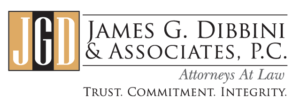The revocable trust has become increasingly used by individuals as a way to transfer assets to their beneficiaries and want to avoid probate. The revocable trust is similar to a will in that it may be used as a vehicle to transfer assets. However, unlike a will, a revocable trust avoids probate, which allows for immediate transfer of assets without the Surrogate Court process. This saves the attorney’s fees associated with probate, saves the executor’s commission associated with probate, and maintains privacy as the revocable trust is not filed with the Surrogate’s Court.
The revocable trust allows the individual creating the trust (also known as the “settlor”) to maintain control of their assets even though they are transferred to the trust. The settlor transfers assets, i.e., real estate, automobiles, boats, stocks, bonds, and other investments, and determines the terms that govern the trust. To maintain control of the assets, the settlor is generally the “primary trustee” and “primary beneficiary”. However, successor trustee(s) and beneficiary(ies) are named so that upon the settlor’s death, the trust continues with the successor trustee(s) overseeing the trust and the successor beneficiary(ies) receiving income/principal from the trust.
The revocable trust does have disadvantages. A revocable trust should not be used if the goal is to plan for Medicaid. Since the settlor retains control over the trust and assets, Medicaid treats the assets in the revocable trust as if they are in the settlor’s personal name. Any costs associated with home nursing care or nursing home care will come out of the trust until all assets are depleted before Medicaid will provide benefits. In addition, there are not many estate tax benefits that you can take advantage of using a revocable trust. If these are your goals, an irrevocable trust may be better suited for you.
Our firm works closely with our clients to ensure they understand the revocable trust and the other various options available. Our focus is to not only understand our clients’ needs and goals, but also ensuring our clients understand their estate plan and the related complex issues. In this important process, our clients are as much involved in the drafting and implementing of their estate plan as we are.
The attorneys at James G. Dibbini & Associates, P.C. have over 20 years of experience in Wills, Trusts & Estates.
In order to learn more about how we can assist you with your Wills, Trusts and/or Estates matter, please feel free to contact us directly at (914) 965-1011.






